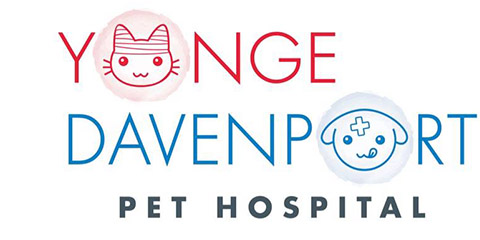Library
-
Lung tumors are considered rare in cats and dogs. Many pets may not show symptoms at first, and a tumor may be found coincidentally. Depending on the type and stage of cancer, treatment may be possible; otherwise, symptomatic supportive care may be an alternative option.
-
In North America, many parasitic lungworms infect cats. Cats can become infected by swallowing infective stages of parasitic lungworm. The exact means of becoming infected varies according to the life cycle of the particular parasite. Signs can include coughing, heavy breathing, wheezing, sneezing, poor appetite or anorexia, weight loss, fever, enlarged lymph nodes, and ocular or nasal discharge, and may be more prominent in kittens due to their immature immune systems. Although the success rate of treatment depends on the severity of symptoms and the number of parasites present, the prognosis for recovery is generally good.
-
A luxating patella is a kneecap that 'pops out' or moves out of its normal location. Signs include intermittent lameness, an unusual 'skipping' on the affected leg when the cat walks or runs, or difficulty jumping. A luxating patella can be corrected surgically, especially if the patella luxates frequently. If your veterinarian performs surgery before arthritis or another knee injury occurs, the prognosis is excellent.
-
Lymphatic tumors are rare in pets. Lymphangiomas are benign and lymphangiosarcomas are malignant and have a moderate-to-high metastatic potential. Patients with lymphatic tumors typically have severe edema or cavity effusions because of lymphatic obstruction and leakage. These types of tumors occur more frequently in young dogs and cats. Treatment usually involves surgical excision and chemotherapy may be used as a follow-up treatment in the case of lymphangiosarcomas.
-
Lymphocytic plasmacytic gastroenteritis is a form of inflammatory bowel disease. While the exact cause is not known, it is possible that the intestinal bacteria themselves may be involved in stimulating the immune response. Signs include diarrhea, vomiting, loss of appetite, weight loss, and blood in the stool/vomit. Treatment may include nutrition management, immunosuppressive medications, and dietary supplementation of cobalamin, prebiotics, and probiotics.
-
Lymphoma is a cancer of the lymphocytes. Lymphocytes are cells that are involved in the immune system. Feline lymphoma most commonly affects the intestines; therefore, clinical signs of lymphoma are often similar to other intestinal diseases. Diagnosing lymphoma requires finding cancerous cells on microscopic examination. This cancer cannot be prevented, but the likelihood of a cat developing lymphoma can be decreased by preventing feline leukemia virus infection.
-
The most common forms of cutaneous lymphoma are epitheliotropic lymphoma and dermal lymphoma. No specific risk factors or causes have been identified in the development of cutaneous lymphoma. Generally, cutaneous lymphoma can appear as various-sized irritated, ulcerated, or infected patches anywhere on the skin, including the gums, nose, or lip margins. These areas may become ulcerated and bleed, or become crusted. Secondary infections are possible. By far, the most common treatment for cutaneous lymphoma is chemotherapy. Unfortunately, the response to treatment, although initially encouraging, is typically short-lived, with gradual return of the tumors.
-
Lysine is given by mouth and is used on and off label to treat signs and symptoms associated with feline herpes virus infection in cats. Give as directed by your veterinarian. Side effects are uncommon but may include diarrhea. There are no specific contraindications for using this supplement. If a negative reaction occurs, please call your veterinary office.
-
Once a pet has lost some weight, the new goal is to make sure that excess weight stays off. Pet parents who partner with their veterinary health care team for support and who focus on changing their behaviors often have the most success. Examples of some changes include using a different food or a different feeding method, focusing more on portion control, and incorporating some movement or activity time into each day. This article addresses several commonly asked questions about how to help a pet during the maintenance phase (after the weight has been lost).
-
Cats have four types of teeth: incisors, canines, premolars, and molars. Skeletal malocclusion results when an abnormal jaw length creates a malalignment of the teeth. Dental malocclusion occurs when the upper and lower jaw lengths are considered normal but one or more teeth are out of normal alignment. This article explains the common forms of skeletal and dental malocclusion seen in cats.





